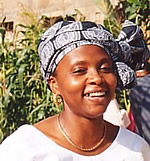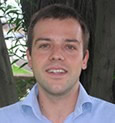Radio penetration is relatively high in Cameroon. With about eighty percent of the households having a radio, it is the most common communication technology in the east African country. Compared to computer penetration – which is quite low – radio can provide excellent educational opportunities. Protege QV, a Cameroonian organisation working for the betterment of the community through information sharing, trainings, and research, […]
Author: claire
African learning management systems: reality lags behind enthusiasm
A comprehensive new study, led by Professor Tim Unwin of the University of London, will review Africa’s Learning Management Systems. How best to deliver, track and manage education on a broad scale is a controversial subject in Africa and it provided the inspiration for several high-quality sessions on Learning Management Systems (LMSs) at this year’s eLearning Africa conference. Professor Unwin’s study draws on […]
SPIDER – the Swedish Program for ICT in Developing Regions
The Swedish government established SPIDER to unify the national knowledge resources in the area of ICT and to make them available to developing countries. Behind the Center’s work stand the Swedish International Development Cooperation Agency (Sida) and the Royal Institute of Technology (KTH), Stockholm, where SPIDER is hosted.
Social networks for education
Social Networks exist on many levels and in a variety of orientations, from family or dating networks over business circles up to national or international interdisciplinary contact networks. People within these networks share ideas, contacts and opportunities for many different reasons. The idea behind social networking is to benefit from the variety of different sources, instead of uniting them for one single goal as […]
Voices of Africa – Joseph Musangi, Nairobi, Kenya
Joseph Musangi is Manager at eCornell (Cornell University online programmes) in Kenya, Nairobi and considers himself a member of the next generation of leaders and entrepreneurs in Africa. He shared his thoughts and doubts with us whether Africa is aware of its potential.
The NEPAD e-Schools initiative
The New Partnership for Africa’s Development (NEPAD) is both a vision and a strategic framework for African renewal that has been created by the Organisation for African Unity (OAU). The overall goal is the development of an integrated socio-economic development framework for Africa. A major component of this framework is the development of information and communication technology (ICT) infrastructure as this is seen as […]
Open Educational Resources for African students
The Open University has more than 200,000 students registered in its courses. Since its foundation in 1969, the University has pursued a social justice mission to open education to all. OpenLearn, a £5.65 million project, was generously supported by a grant from the William and Flora Hewlett Foundation which has been a leading investor in the area of Open Educational Resources over the past […]
Sustainable human resource development in Africa
Dr Kenneth Keirstead is of South African origin and a graduate of the Pathology Institute in Halifax, Nova Scotia. He also graduated from two advanced education institutions in the US in executive management (College of William and Mary and Columbia University). After more than three decades in senior research and management positions with multinational companies, he specialised in public health care policy, followed by […]
Interview with Faith Macharia, National Director of the Forum for African Women Educationalists (FAWE), Kenya Chapter
The Forum for African Women Educationalists (FAWE) is a pan-African non-governmental organisation founded in 1992 to promote girls’ and women’s education in sub-Saharan Africa in line with the Millennium Goal of Education for All. With headquarters in Nairobi, Kenya, FAWE has a network of national chapters in 32 countries.
Partnerships for development in Africa
Tim Unwin (born 1955) is Professor of Geography at Royal Holloway, University of London, and Programme Director of the World Economic Forum’s Partnerships for Education initiative with UNESCO. From 2001-2004 he led the UK Prime Minister’s Imfundo: Partnership for IT in Education initiative based within the UK’s Department for International Development. In 2004 he established an ICT4D collective (http://www.ict4d.org.uk) at Royal Holloway, University of […]











